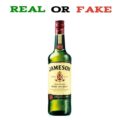Scotch whisky often simply called whisky or Scotch is malt whisky or grain whisky (or a blend of the two), made in Scotland. Scottish whiskies are among the world’s most revered spirits. There are varying styles, though all can be delectable masterworks in their own right. Some are flavored heavily by peat and smoke, others are light and fruity. Coastal whiskies are often flavored by the sea and a refined salinity can be found. There is always a sweetness; sometimes in omnipresence, sometimes lurking in the substrata. Scotch whisky must be made in a manner specified by law. As of 2018, there were 133 Scotch whisky distilleries operating in Scotland.
All Scotch whisky was originally made from malted barley. Commercial distilleries began introducing whisky made from wheat and rye in the late 18th century. Scotch whisky is divided into five distinct categories: single malt Scotch whisky, single grain Scotch whisky, blended malt Scotch whisky (formerly called “vatted malt” or “pure malt”), blended grain Scotch whisky, and blended Scotch whisky.
All Scotch whisky must be aged in oak barrels for at least three years. Any age statement on a bottle of Scotch whisky, expressed in numerical form, must reflect the age of the youngest whisky used to produce that product. A whisky with an age statement is known as guaranteed-age whisky. A whisky without an age statement is known as a no age statement (NAS) whisky, the only guarantee being that all whisky contained in that bottle is at least three years old. The minimum bottling strength according to the regulation is 40% alcohol by volume.
Glen Heagh Scotch and Other types Of Whiskey
Garnheath: was developed to produce both neutral grain spirit NGS and grain whisky at a time of increasing demand for blended Scotch whisky. With its five continuous stills it had a capacity of 15m OPG original proof gallons, making it one of the largest grain distilleries in Scotland at the time.
Glen’s Eagle Profile Blended Scotch Whisky: Glen’s Eagle was an unaged blend exported to Europe, primarily to Switzerland, where its owner was based, and Austria. The label featured an arresting graphic of bird of prey definitely not an eagle grappling with a pheasant that is twice its size.
Glen Keith Single Malt Whisky: A comparatively modern distillery, Glen Keith also known as Glen Keith-Glenlivet and Glenkeith was established in Keith, Banffshire in 1957 by Chivas Brothers, a subsidiary of Seagram, with construction finishing in 1960. “Brought to maturity over eight long years of ageing in oak casks, GLEN TURNER 8-year-old Rare Reserve is a unique whisky whose characteristic flavor and bouquet are punctuated with slightly peaty vanilla notes.
Scotch Whisky Negative Side Effects and Disadvantages
Alcohol Poisoning – Scotch Whisky is a drink that has very large percentage of alcohol in its structure (around 40%), much more than beer or wine (around 8-13%). Because of that, people can lose track of intake while drinking whisky, which can lead to the alcohol poisoning. This illness is a result of the elevated alcohol level in our blood, which can induce difficulties in breathing, gag reflex and elevated heart rate.
Impaired Judgment – Very small amount of Scotch whiskey can produce strong side-effects, most noticeably almost immediate impairment to our judgment. People under the influence of alcohol often make rash, risky or illogical decisions, they lose their sense of fear or sometimes get paranoid, afraid and aggressive. The most common examples of impaired judgment caused by drinking are aggressive behavior, drink driving, sexual irresponsibility and in some cases suicidal tendencies.
Cirrhosis – Constant abuse of alcoholic beverages such as scotch whiskey over long periods of time can produce serious side effects and can damage our metabolism. One of the most famous fatal effects of this kind of prolonged whiskey intake is cirrhosis of the liver, which is hardening of the liver that is caused by the buildup of the scar tissue caused by alcohol. This scar tissue restricts the blood flow through the liver, which in turn reduces its potential to purify our blood from harmful toxins, fight infections and regulate blood clotting.
Addiction – Regular intake of alcohol can create very serious physical and mental disorder in which person gets very strongly addicted to alcohol. This very serious addiction can be found all over the world, and governments, medical personnel and various public organizations are fighting daily for better control, prevention, diagnosis and recovery methods to fight against it.
Pregnancy problems – Large intake of alcohol especially Scotch whiskey during pregnancy can cause spontaneous abortion and physical or mental disabilities for the fetus (malformations and other birth problems).
Stroke – Because of the strong influence alcohol can have on our metabolism, blood, heart and liver, large and regular intake of Scotch whiskey can cause stroke, serious injuries of heart muscle, and in some cases death.
Interference with other diseases –Persons who are affected by the conditions of the liver, affections of the pancreas, Precancerous stages of the digestive system and survivors of the hemorrhagic stroke MUST NOT drink Scotch whiskey, highland scotch or any other type of alcohol.
Interference with medication – Scotch whiskey and all other alcohol beverages can strongly interact with some types of medicine, causing severe reaction that can seriously affects our health. Persons who are taking anticoagulants, medication for diabetes, beta blockers, antihistamines, antibiotics, antidepressants, pain relievers and sleeping pills must avoid alcohol.






